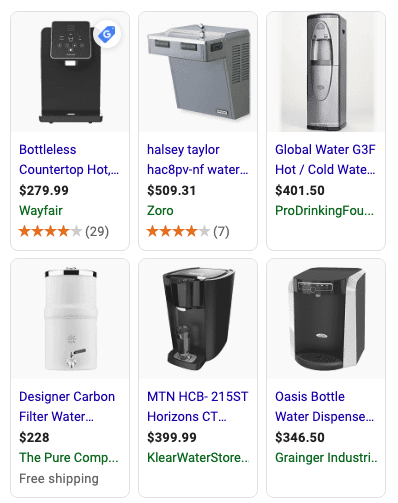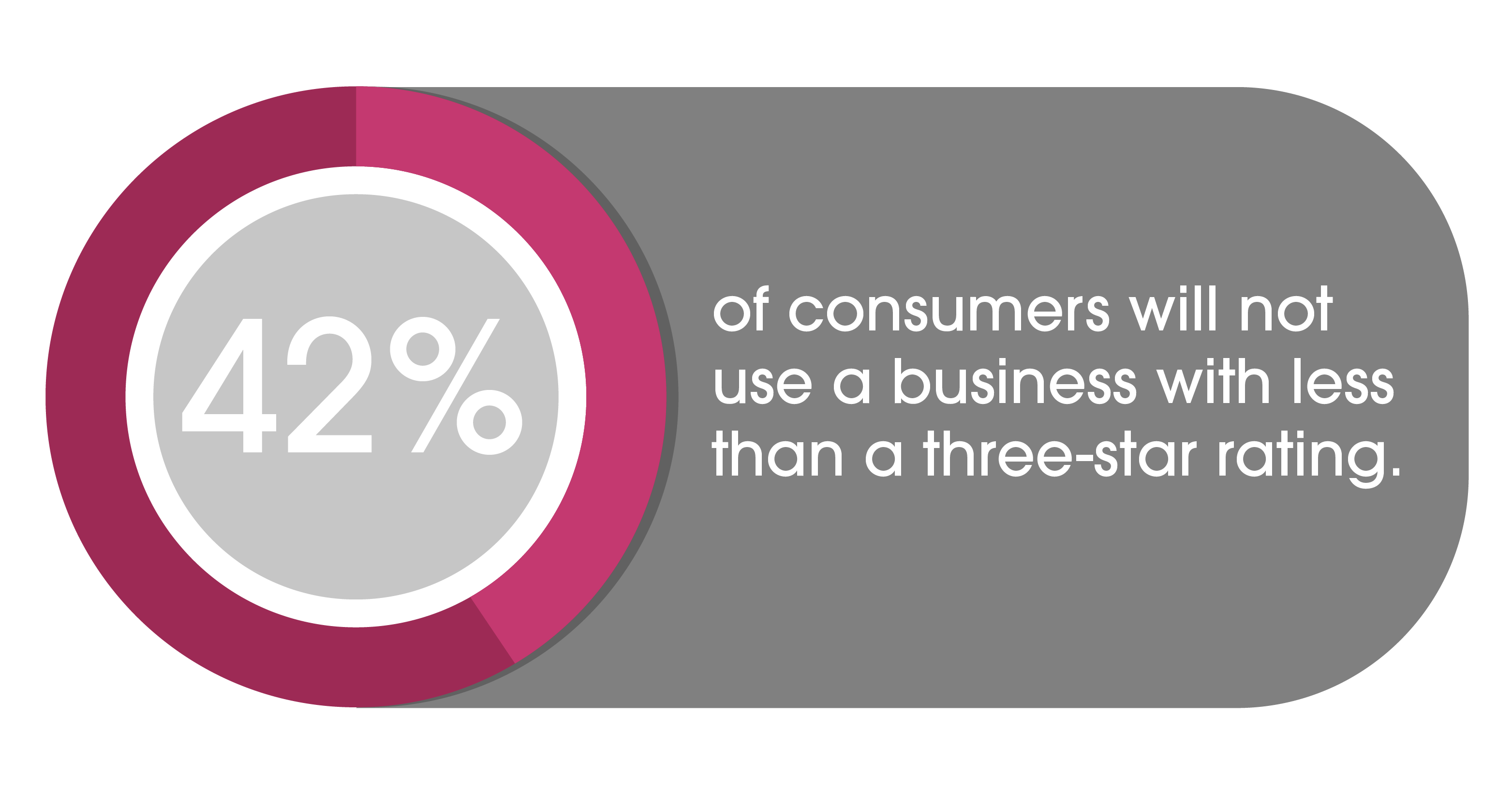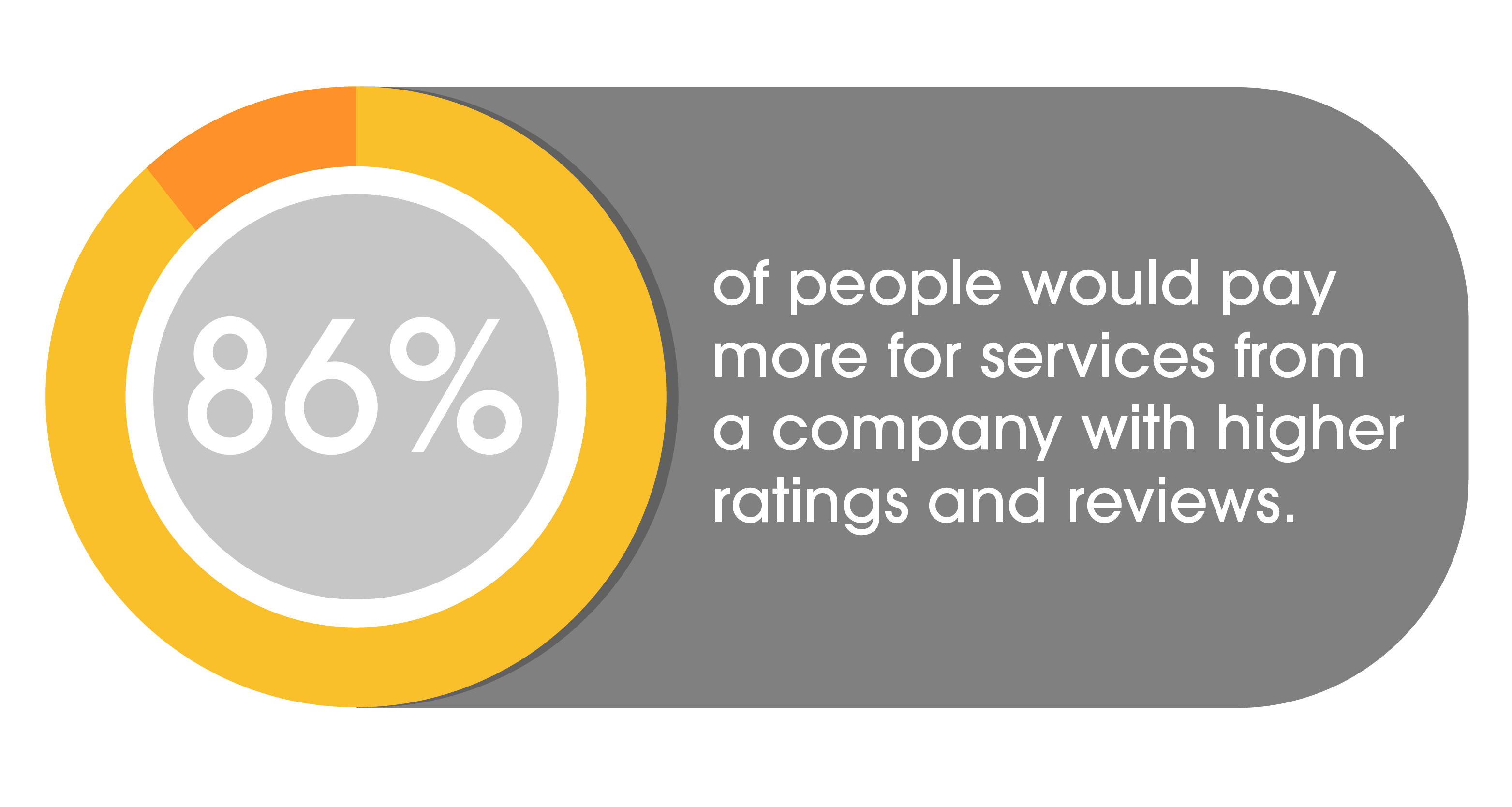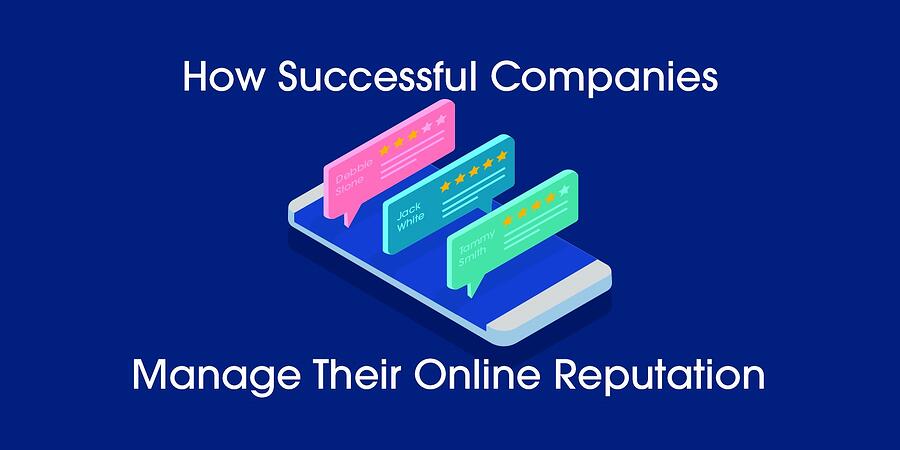7 minute read
Some people think that reputation is something that we all left behind in high school – the stuff of giggling girls in the corner whispering about that time you squirted ketchup all over yourself in the cafeteria.
However, much like the “most likely” labels assigned in yearbooks that are now collecting dust, the online reputation of your company portrays a powerful image to the world and, more importantly, your sales prospects.
So let’s start off with some great statistics to build up the importance before we dive into how successful companies manage their online reputation.
- 97% of consumers read online reviews before making a buying decision.
- 86% of people would pay more for services from a company with higher ratings and reviews, according to Nusani.
- RevLocal found that 42% of consumers will not use a business with less than a three-star rating.

Generate More Positive Reviews & Show Them Off
We live in a world where reviews matter. They matter a lot. People seek out product and service reviews from their family, friends and online to make informed purchasing decisions. In fact, potential customers may not even visit your website if your reviews are less than stellar, if you have too few or none at all. This is one major reason why it is so important to pay attention to how successful companies manage their online reputation.
While they may not sound related, reviews can also affect how well your webpages or product listings rank in search engine results or app results like Amazon. A gradual but steady accrual of positive reviews will improve your ranking over time.

When a review rich snippets schema is added to your website or ecommerce store, it ensures that your star rating will show up in search results with your meta listing. Making it easy for people to see your reputation is critical because it will give you an competitive edge and increase click-through rates.
Requesting feedback after a purchase with a survey is great for generating reviews, improving your business, and intercepting a bad experience before the world knows about. You have definitely seen these surveys as an email if you have ever purchased anything on Amazon. Text message surveys are even better for response rates if you have permission to do so.
The way you communicate with your existing customers and prospects matters, as well. It is not enough to blatantly promote your services or products on social media. You must carry on positive, empathetic conversations with those who engage with your posts.
Why is any of this important? Because the Internet has increased competition for all businesses by creating a global marketplace. You are no longer just competing with the guy down the street – you are competing with similar companies across the nation and/or around the world. Today, it is very common for you not to meet many of your customers in person, so their first impression of your brand is only what exists online.

Get Social To Get Business
Social media reputation management is all about building credibility with existing and potential customers to gain their trust in your company, products and services. Goals of this form of online reputation management include preventing, removing and mitigating any negative feedback posted on social media.
This is accomplished by monitoring and tracking the activity on all of your social media accounts on a regular basis. While doing so requires a certain amount of time and effort, it pays off in the end and we have the stats to prove it:
- 78% of consumers say companies’ social media posts impact their purchases.
- 4 out of 5 people state that they have received advice via social media regarding what product or service to purchase, according to Vendasta.
- Igniyte stated that 1 in 3 businesses says negative social media posts pose the greatest reputation threat.
When it comes to social channels, being responsive to those who interact with your brand is imperative for showing your target audiences that your business is trustworthy, transparent and customer service oriented. By communicating openly and with empathy, you demonstrate that people can feel at ease about doing business with you.
Many companies utilize Twitter and Facebook messages for customer service or support, for this very reason. This social tactic gives them a viable means of providing immediate responses to customer questions, concerns and complaints. And since most customers are already active on social channels, the messaging function offers a natural way to communicate effectively that other channels lack.
That said, there are limits to how transparent those managing your social media accounts should be in certain circumstances. Social media can feel casual, but it does not give brands an excuse to behave inappropriately. For example, if an existing customer posts a belligerent statement on your company’s Facebook page, your reply should be very polite, professional and helpful.
Responding To Negative Reviews & Best Practices
“Thank you for your feedback, @JonSmith. We want all of our valued customers to be happy with our services and I would love to resolve this matter for you. Please give me a call at 800-888-8888.”
Whether Jon Smith is in the right or in the wrong is irrelevant. Handle the situation as you would if he was standing in front of you or on the other end of the phone. In fact, you should be especially careful with your reaction because the exchange is taking place on a public forum with a large audience watching.
You should never admit fault on your company’s behalf to the public, nor place blame elsewhere. Another major no-no is carrying the conversation on in plain view of your audience. Continuing the conversation offline, via phone or email, spares your audience from witnessing a negative back-and-forth exchange. While it may seem like a solution, you should never offer a free product or service online to defuse the situation. Doing so can open a major can of worms, as other people may start leaving negative reviews just so they can get free stuff.
Showing Off Your Positives
Publishing 4-to-5-star reviews to social channels is another way to bolster your company’s online image. It lets prospects know you are a legitimate enterprise that delivers on its products, services and word. This puts the positives in the forefront, while negatives take a couple of clicks to find.

The Online Review Sites You Should Care About Most
There are many online review sites and while all reviews matter, certain sites should take priority over others due to the amount of traffic they get and the influence they exert. Additionally, some sites were created for specific industries, so you want to ensure that your reviews are showing up on the sites relevant to your brand’s industry.
You should also keep in mind that some review sites work in partnership with others or are owned by the same parent company. For example, Yelp listings are displayed on Yahoo Local and Bing Places. This means Yelp reviews pack an extra powerful punch.
List Of The Top Review Sites:
- Yelp
- Birdeye
- Better Business Bureau
- Glassdoor
- Angie’s List
- Merchant Circle
- Industry specific review sites such as HomeAdvisor, TripAdvisor, GrubHub, Healthgrades, etc
- Shopping sites and apps including Amazon and eBay
One effective way companies manage their online reputation is by staying on top of their online presence. This involves checking up on it and requesting feedback from existing customers frequently – at the very least once per week.
If this sounds terribly time-consuming on top of the work your team already has on its plate, rest assured, these processes can be automated with cloud-based technology. Certain softwares allow users to send automated review and survey requests via text message or email, auto-publish positive reviews as often as you want across multiple platforms, send real-time alerts of poor experiences, and pull in all of your reviews into one centralized dashboard with performance reports.
Most Likely To Succeed
Managing your reputation in-house can be overwhelming and time-consuming. In order to do it well, you need to use the right resources and devise solid strategies. When you partner with Tag Marketing, we take care of all of it for you.
Working with advanced tools and having extensive experience with reputation management across multiple channels, we automate the process and deliver results.
Learn how we can help your company become “Most Likely To Succeed” through our online reputation management services or continue reading about managing your reputation can save your business.
If you found this article helpful, you should check out our Successful Guide To Reputation Management. It is full of tips, tricks, tools, statistics and more.
